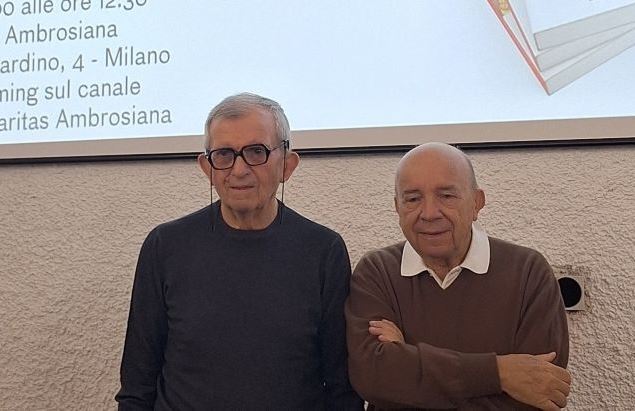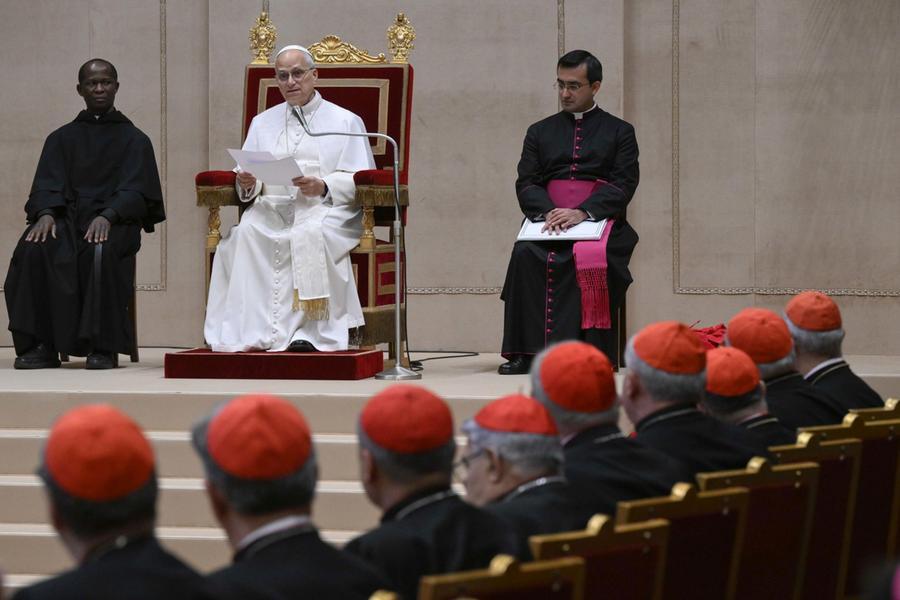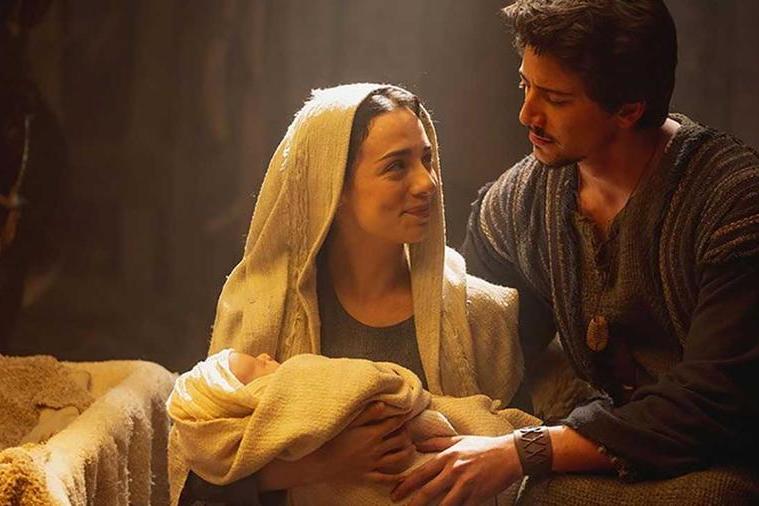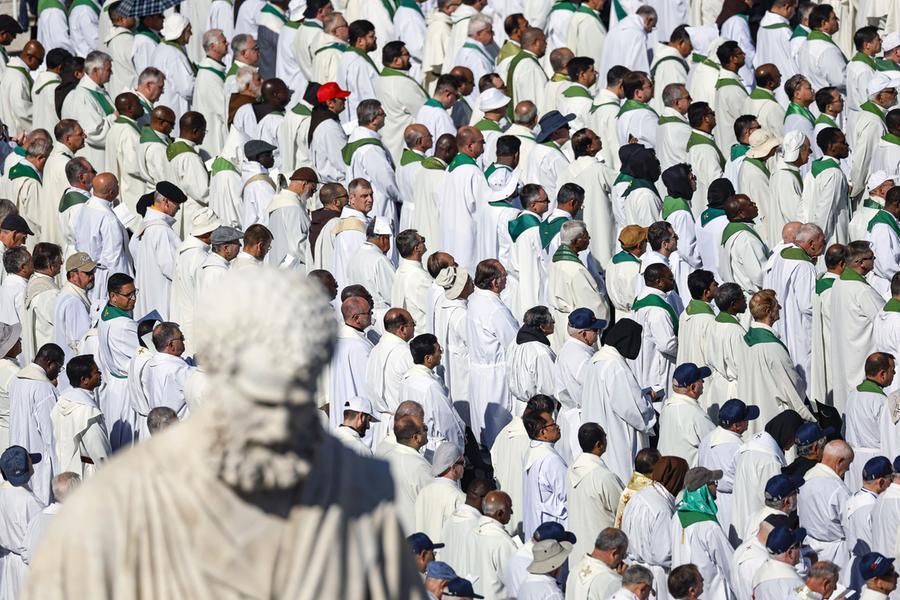The one between Don Virginio Colmegnadirector of Caritas Ambrosiana from 1993 to 2004, then president of the “Casa della Carità – Angelo Abriani” Foundation until 2023 and Gustavo Zagrebelsky, president of the Constitutional Court in 2004And a meeting that has deep roots. A dialogue that Gianni Tognoni, Secretary General of the Permanent Peoples’ Tribunal, defines as “revolutionary” in their respective differences.
In a time in which every discussion on social media is a white-weapon battle that is polarized at the extremes, in which everyone sticks to their own opinion, no matter what, and, no matter what, ends up in mutual insults. In a time in which bladed weapons, in the strict sense, physically emerge more and more often from the pockets of young people on street corners and in which approximately half of voluntary homicides arise from degenerate arguments, the “dream” (copyright Don Colmegna) of two over 80s, very young in spirit, is a breath of fresh air, who, from two different points of view, the secular one of the jurist and the Christian one of the believer who has dedicated his life to the least, dialogue seeking a common thread on the theme of “charity and justice” and they find it in a precious book, presented on 13 October, and the occasion of a conference, at the Caritas Ambrosiana Milan headquarters entitled: The constitution of the poor edited by Daniela Padoan for Castelvecchi.
«The proposal for this dialogue», says Don Colmegna«I was reminded of the last Chair of non-believers, the initiative promoted in Milan in 1987 by Carlo Maria Martini, in which the Cardinal spoke in public with a non-believer and which in 2002 ended with the meeting with Gustavo Zagrebelsky, a constitutional judge at the time. Martini gave us dialogue as a cultural choice. When we talked about setting up the Casa della Carità in Milan, he told me: “Justice needs charity and charity needs justice”. Don Lorenzo Milani said: “Justice without charity is a scam”. Charity is overcoming the welfare vision, it places the person and their dignity at the centre, it is not almsgiving but fraternity, humanity, universality. Charity places the person at the center starting from deciding which side you are on. This point united us immediately, charity becomes decisive in the faces of people: as individuals, not as numbers and statistics: it was natural to dialogue starting from the fact that we must start with inequalities, because we cannot find universality of rights if we don’t start from the weak.”
From there the dialogue found points of agreement in concrete matters: health, school, prison, judicial psychiatric hospitals, hate speech, non-violence: «I spent two nights studying the Apostolic Exhortation Dilexi youof Pope Leo XIV”, continues Don Colmegna, “I heard our language resonate: the Gospel must be lived, poverty is structurally created by the system in which we live, let’s not be content with making books out of it, let’s make it cultural, political, spiritual energy in a secular sense capable of making believers and non-believers dialogue. There is a need for testimony, for prophecy, for not stopping dreaming”.
“The extraordinary thing,” he echoes Gustavo Zagrebelsky, «is that if we did the sum of the quotations of the texts, of the most frequent references», counting the times, «in which Don Virginio cited the Constitution and I, as an amateur, cited sacred texts, we see that this meeting has produced, so to speak, a secular-Christian “encyclical”, a fusion and not a juxtaposition, demonstrating how it is possible under certain conditions to reason constructively from a point of view secular and Christian. An experiential, non-theoretical book that starts from the consideration of concrete positions from below. I seem to remember that a psalm says: “truth comes down from heaven, righteousness springs from the earth”, right? I really like this localization: truth is a dimension that is filled with general formulas, justice needs to deal with concrete situations: every solution to the problems we have dealt with: school, healthcare, prison, moves from the particular to the general: if an issue is resolved for someone in one way, others have the right to see it resolved in the same way. Here the issue of equality comes into question. In our work as jurists it is essential not to forget that treating different situations in the same way is not justice, so we only do formal justice but substantial injustice, reasoning in this way implies that we must choose, take a position. The most beautiful thing about this dialogue is the satisfaction of seeing ideas emerge that I hadn’t thought of: together we grow. Alone, the most beautiful ideas become sterile. To jurists I say: the law that serves everyone must mix with the lows of life, there is room to improve the community and existence.”
A similar concept is expressed by Marilisa D’Amico, professor of Constitutional Law at the University of Milan, among the guests: «The meeting point of the Constitution and the Gospel is the concrete experience of injustice: the Constitution and faith require taking a position, you cannot stay in your own room».
During the meeting we often hear Don Primo Mazzolari and Don Lorenzo Milani mentioned, he reminds them Francesco Maisto, former president of the Supervisory Court of Emilia Romagna and later Guarantor of prisoners of the City of Milan: «Pastoral experiences And Letter to a teacher by Don Milani, the encyclicals of Pope Francis, Our brother Judas by Don Mazzolari, cited here, are timeless books, especially in a time when walls of punitive terrorism want to be raised. You who recommend paying attention to the choice of words”, he says, addressing Don Colmegna and Gustavo Zagrebelsky, regarding suicides in prison, “are talking about “state murders”. It is necessary to mention Cardinal Martini’s 2003 book: It’s not justice, guilt, prison, the word and God. I recognize the method: let’s start from what is not justice, peace, education.”










